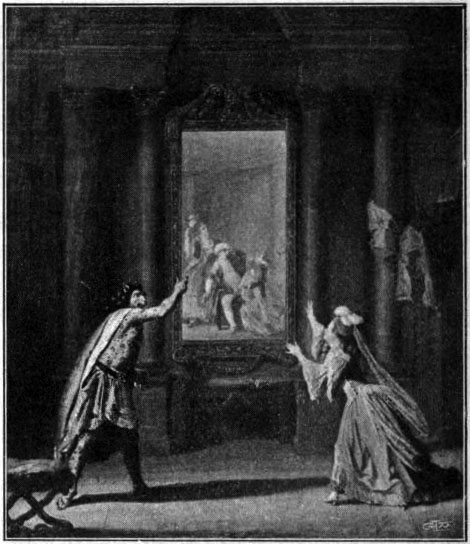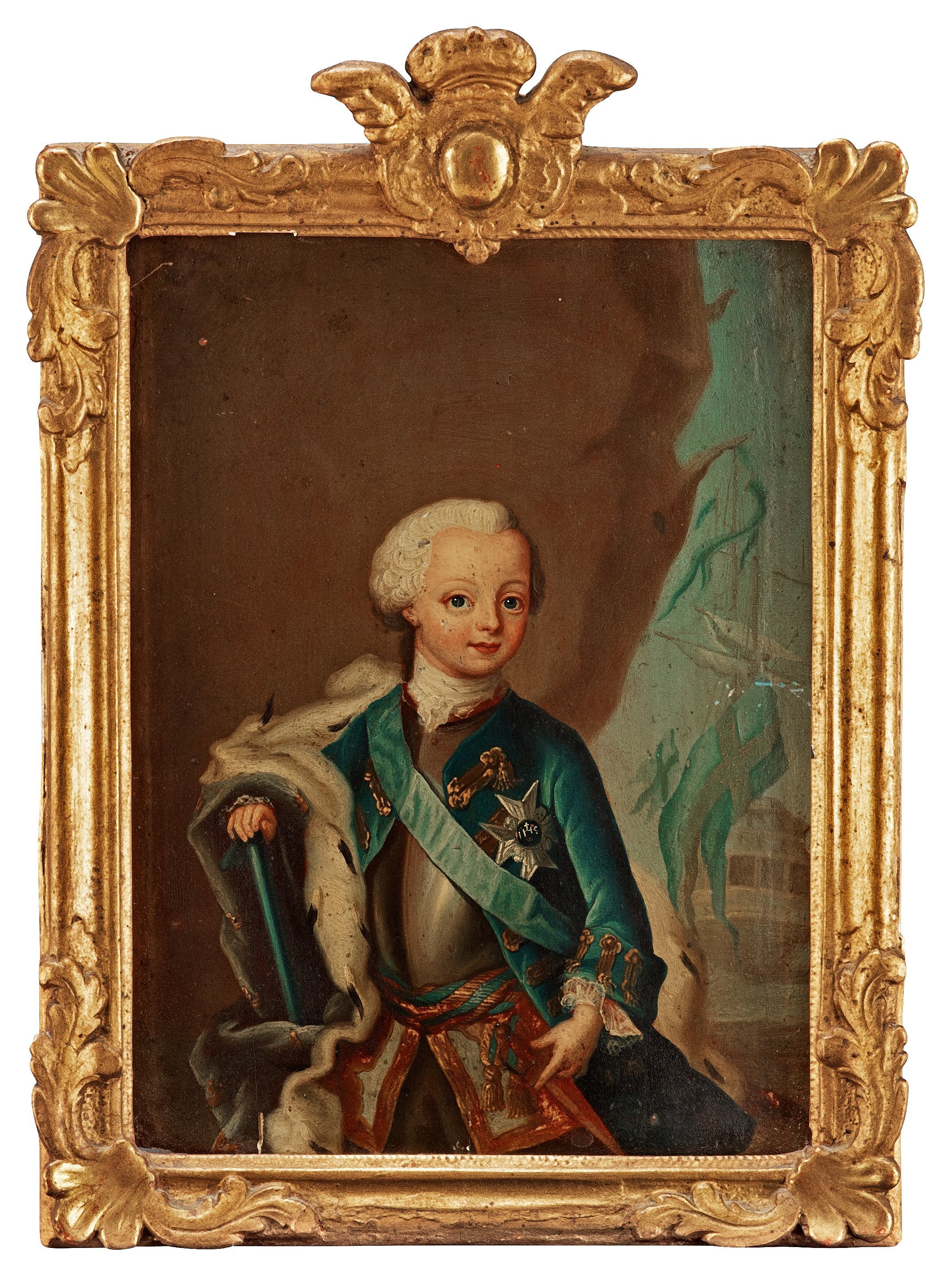|
Samuel Ahlgren
Johan Samuel Ahlgren (1764–1816) was a Swedish actor. He wae an elite actor of the Royal Dramatic Theatre and belonged to the pioneer generation of actors there. Life Samuel Ahlgren was born to the clerk Lars Ahlgren and Elisabet Fredrika Fredriksson and married Albertina Griberg in 1793. He initially worked as a clerk. Career He was engaged by Fredric Ristell in the newly founded Swedish language Ristell theatre in Bollhuset in 1787. Samuel Ahlgren was described as a beauty with a pure and clear voice, was recommended for his clear pronunciation and for his posture and played both hero and villain, though he was criticized for overacting because of his hot temperament. Because of his good looks, he was often given the parts of lover. His most acclaimed part was Axel Oxenstierna in ''Drottning Kristina'' by Gustav III of Sweden (1790). Among his other parts was Soliman in ''Soliman II eller de tre sultaninnorna'' by Martin Krause in the 1789–90 season, Appius in ''Virginia ... [...More Info...] [...Related Items...] OR: [Wikipedia] [Google] [Baidu] |
Duel
A duel is an arranged engagement in combat between two people, with matched weapons, in accordance with agreed-upon Code duello, rules. During the 17th and 18th centuries (and earlier), duels were mostly single combats fought with swords (the rapier and later the small sword), but beginning in the late 18th century in England, duels were more commonly fought using pistols. Fencing and shooting continued to co-exist throughout the 19th century. The duel was based on a Code of conduct, code of honor. Duels were fought not so much to kill the opponent as to gain "satisfaction", that is, to restore one's honor by demonstrating a willingness to risk one's life for it, and as such the tradition of dueling was originally reserved for the male members of nobility; however, in the modern era, it extended to those of the upper classes generally. On occasion, duels with swords or pistols were fought between women. Legislation against dueling goes back to the medieval period. The Fourth Co ... [...More Info...] [...Related Items...] OR: [Wikipedia] [Google] [Baidu] |
18th-century Swedish Male Actors
The 18th century lasted from January 1, 1701 ( MDCCI) to December 31, 1800 ( MDCCC). During the 18th century, elements of Enlightenment thinking culminated in the American, French, and Haitian Revolutions. During the century, slave trading and human trafficking expanded across the shores of the Atlantic, while declining in Russia, China, and Korea. Revolutions began to challenge the legitimacy of monarchical and aristocratic power structures, including the structures and beliefs that supported slavery. The Industrial Revolution began during mid-century, leading to radical changes in human society and the environment. Western historians have occasionally defined the 18th century otherwise for the purposes of their work. For example, the "short" 18th century may be defined as 1715–1789, denoting the period of time between the death of Louis XIV of France and the start of the French Revolution, with an emphasis on directly interconnected events. To historians who expand ... [...More Info...] [...Related Items...] OR: [Wikipedia] [Google] [Baidu] |
1816 Deaths
This year was known as the ''Year Without a Summer'', because of low temperatures in the Northern Hemisphere, possibly the result of the Mount Tambora volcanic eruption in Indonesia in 1815, causing severe global cooling, catastrophic in some locations. Events January–March * December 25 1815–January 6 – Tsar Alexander I of Russia signs an order, expelling the Jesuits from St. Petersburg and Moscow. * January 9 – Sir Humphry Davy's Davy lamp is first tested underground as a coal mining safety lamp, at Hebburn Colliery in northeast England. * January 17 – Fire nearly destroys the city of St. John's, Newfoundland. * February 10 – Friedrich Karl Ludwig, Duke of Schleswig-Holstein-Sonderburg-Beck, dies and is succeeded by Friedrich Wilhelm, his son and founder of the House of Glücksburg. * February 20 – Gioachino Rossini's opera buffa ''The Barber of Seville'' premières at the Teatro Argentina in Rome. * March 1 – The Gorkha ... [...More Info...] [...Related Items...] OR: [Wikipedia] [Google] [Baidu] |
1764 Births
1764 ( MDCCLXIV) was a leap year starting on Sunday and is the fifth year of the 1760s decade, the 64th year of the 18th century, and the 764th year of the 2nd millennium. Events January–June * January 7 – The Siculicidium is carried out as hundreds of the Székely minority in Transylvania are massacred by the Austrian Army at Madéfalva. * January 19 – John Wilkes is expelled from the House of Commons of Great Britain, for seditious libel. * February 15 – The settlement of St. Louis is established. * March 15 – The day after his return to Paris from a nine-year mission, French explorer and scholar Anquetil Du Perron presents a complete copy of the Zoroastrian sacred text, the ''Zend Avesta'', to the ''Bibliothèque Royale'' in Paris, along with several other traditional texts. In 1771, he publishes the first European translation of the ''Zend Avesta''. * March 17 – Francisco Javier de la Torre arrives in Manila to become the new Spanis ... [...More Info...] [...Related Items...] OR: [Wikipedia] [Google] [Baidu] |
Marie Louise Marcadet
Marie Louise Marcadet née ''Baptiste'' (3 December 1758 – 28 February 1804) was a Swedish opera singer and a dramatic stage actress of French origin. She was active in the Royal Swedish Opera as a singer, and in the Royal Dramatic Theatre and the French Theater of Gustav III as an actress. She was a member of the Royal Swedish Academy of Music from 1795. Life Marie Louise Marcadet was born in Sweden as the daughter of the French actors Marie Baptiste and Jacques Anselme Baptiste. Her parents where both engaged at the French theater in Stockholm, and she was trained as a stage artists by them. The Baptiste family left Sweden in 1771, when the French theater was dissolved by Gustav III of Sweden upon his succession to the throne. She returned to Sweden with her parents in 1776, and performed with some of the French actors of the old theater, which entertained the Swedish royal court in a smaller scale, until a new French theater was established in 1781. In 1780, she marr ... [...More Info...] [...Related Items...] OR: [Wikipedia] [Google] [Baidu] |
Charles XIII Of Sweden
Charles XIII, or Carl XIII ( sv, Karl XIII, 7 October 1748 – 5 February 1818), was King of Sweden from 1809 and King of Norway from 1814 to his death. He was the second son (and younger brother to King Gustav III) of King Adolf Frederick of Sweden and Louisa Ulrika of Prussia, sister of Frederick the Great. Though known as King Charles XIII in Sweden, he was actually the seventh Swedish king by that name, as Charles IX (reigned 1604–1611) had adopted his numeral after studying a fictitious history of Sweden. In Norway he is known as Charles II. Early life Prince Charles was placed under the tutelage of Hedvig Elisabet Strömfelt and then Ulrica Schönström. He was appointed grand admiral when he was but few days old. He was described as a good dancer at the amateur theatre of the royal court. Reportedly he was not very close to his mother. The Queen preferred her youngest children, Sophie Albertine and Frederick Adolf.Alma Söderhjelm (1945). ''Gustav III:s syskon'' ... [...More Info...] [...Related Items...] OR: [Wikipedia] [Google] [Baidu] |
Abraham De Broen
Abraham de Broen (1759–1804) was a Swedish actor, stage manager and director. Biography Abraham Isaaksson De Broen belonged to the elite of the pioneer generation actors of the Royal Dramatic Theatre. He was also the founder and first director of the ''Djurgårdsteatern''. He was a very popular character actor and mainly played elder male roles in so called burgher plays, often tragedies. In 1781 he was employed at the theater at Bollhuset and was later one of leading actors at Royal Dramatic Theatre. In 1780, he was married to Maria Elisabet de Broen (1756-1809) and was the father of Isaac de Broen (1783-1814) and Debora Aurora de Broen (1790-1862). In 1801, De Broen was granted permission to found the Djurgårdsteatern and serve as its director. Abraham De Broen died on April 4, 1804 at Linköping in Östergötland County Östergötland County ( sv, Östergötlands län) is a county or ''län'' in southeastern Sweden. It has land borders with the counties of Kalma ... [...More Info...] [...Related Items...] OR: [Wikipedia] [Google] [Baidu] |
Royal Dramatic Theatre
The Royal Dramatic Theatre ( sv, Kungliga Dramatiska Teatern, colloquially ''Dramaten'') is Sweden's national stage for "spoken drama", founded in 1788. Around one thousand shows are put on annually on the theatre's five running stages. The theatre has been at its present location in the Art Nouveau building at Nybroplan, Stockholm, since 1908. The theatre was built by the architect Fredrik Lilljekvist. Famous artists like Carl Milles and Carl Larsson were involved in making the decorations, and some of the interior decorations were made by Prince Eugen. The theatre's acting school, the Royal Dramatic Training Academy, produced many actors and directors who would go on to be famous, including Gustaf Molander (who also taught there), Alf Sjöberg, Greta Garbo, Vera Schmiterlöw, Signe Hasso, Ingrid Bergman, Gunnar Björnstrand, Max von Sydow, and Bibi Andersson. The school was split off as a separate institution in 1967 (see Swedish National Academy of Mime and Acting). Hist ... [...More Info...] [...Related Items...] OR: [Wikipedia] [Google] [Baidu] |
Gustav Mauritz Armfelt
Count Gustaf Mauritz Armfelt (russian: Граф Густав-Маврикий Максимович Армфельт, tr, ; 31 March 1757 – 19 August 1814) was a Finnish-Swedish-Russian courtier and diplomat. In Finland, he is considered one of the greatest Finnish statesmen. His advice to Russia's Tsar Alexander I was of utmost importance for securing the autonomy of the Grand Duchy of Finland. Career Born in Tarvasjoki, Finland, he was the great grandson of Charles XII of Sweden's general, Carl Gustaf Armfeldt. In 1774, Armfelt became an ensign in the guards, but his frivolous behavior involving a duel provoked the displeasure of Gustav III of Sweden. As a result, he thought it prudent to go abroad 1778. Subsequently, however, in 1780, Armfelt met the king again at Spa in the Austrian Netherlands and completely won over the previously disgruntled monarch with his natural amiability, intelligence and social gifts. Henceforth, his fortune was made. At first, he was given t ... [...More Info...] [...Related Items...] OR: [Wikipedia] [Google] [Baidu] |







